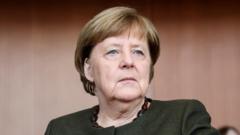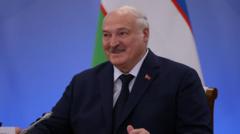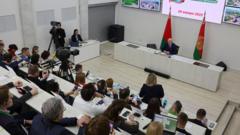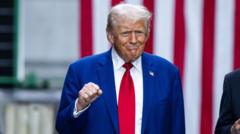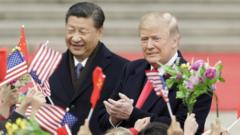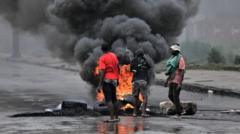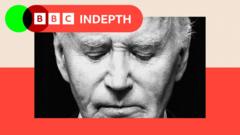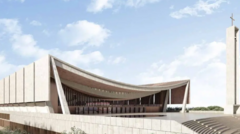As Ghanaians head to the polls, the economic crisis, high inflation, and the legacy of outgoing President Nana Akufo-Addo are factors driving voter decisions.
Ghana Prepares for Presidential Election: Voter Sentiment Tied to Economic Challenges
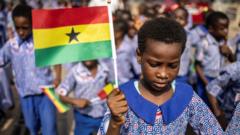
Ghana Prepares for Presidential Election: Voter Sentiment Tied to Economic Challenges
Election day arrives in Ghana with the economy on voters' minds as they choose a new leader.
Election day has arrived in Ghana, marking a pivotal moment as the nation gears up to select its next president amidst an economic crisis and soaring living costs. With President Nana Akufo-Addo stepping down after two terms, Ghana is assured of a new leader, either in the form of a returning politician or a fresh face.
Former President John Mahama, representing the National Democratic Congress (NDC), is making a notable return, while his primary opponent, Vice-President Mahamudu Bawumia of the ruling New Patriotic Party (NPP), could become Ghana's first Muslim president if successful. Other contenders include Alan Kyerematen, who left the NPP, and businessman Nana Kwame Bediako, who appeals to younger voters.
Approximately 19 million Ghanaians are set to cast their votes today, though the only female presidential candidate, Akua Donkor of the Ghana Freedom Party, passed away last October, leaving her name on the ballot due to her successor's disqualification. The election will also see parliamentarians elected in 275 constituencies nationwide.
Since multi-party politics resumed in 1992, only NDC and NPP candidates have claimed the presidency, with no party securing more than two consecutive terms. Voters have a ten-hour window to participate, with polls opening at 07:00 GMT and concluding at 17:00. Should no candidate achieve a majority of over 50%, a runoff will occur by the end of December.
Amidst the concluding campaigns, economic issues have taken center stage. Bawumia claimed his administration has outperformed Mahama's, while Mahama framed the election as a chance for a better Ghana. With inflation peaking at 54.1% last year and unemployment rates high—especially among the youth—the elections may hinge on the younger generation's choices.
As Ghanaians adapt to challenging economic realities, the outcome of this election could significantly shape the nation’s future.
Former President John Mahama, representing the National Democratic Congress (NDC), is making a notable return, while his primary opponent, Vice-President Mahamudu Bawumia of the ruling New Patriotic Party (NPP), could become Ghana's first Muslim president if successful. Other contenders include Alan Kyerematen, who left the NPP, and businessman Nana Kwame Bediako, who appeals to younger voters.
Approximately 19 million Ghanaians are set to cast their votes today, though the only female presidential candidate, Akua Donkor of the Ghana Freedom Party, passed away last October, leaving her name on the ballot due to her successor's disqualification. The election will also see parliamentarians elected in 275 constituencies nationwide.
Since multi-party politics resumed in 1992, only NDC and NPP candidates have claimed the presidency, with no party securing more than two consecutive terms. Voters have a ten-hour window to participate, with polls opening at 07:00 GMT and concluding at 17:00. Should no candidate achieve a majority of over 50%, a runoff will occur by the end of December.
Amidst the concluding campaigns, economic issues have taken center stage. Bawumia claimed his administration has outperformed Mahama's, while Mahama framed the election as a chance for a better Ghana. With inflation peaking at 54.1% last year and unemployment rates high—especially among the youth—the elections may hinge on the younger generation's choices.
As Ghanaians adapt to challenging economic realities, the outcome of this election could significantly shape the nation’s future.


